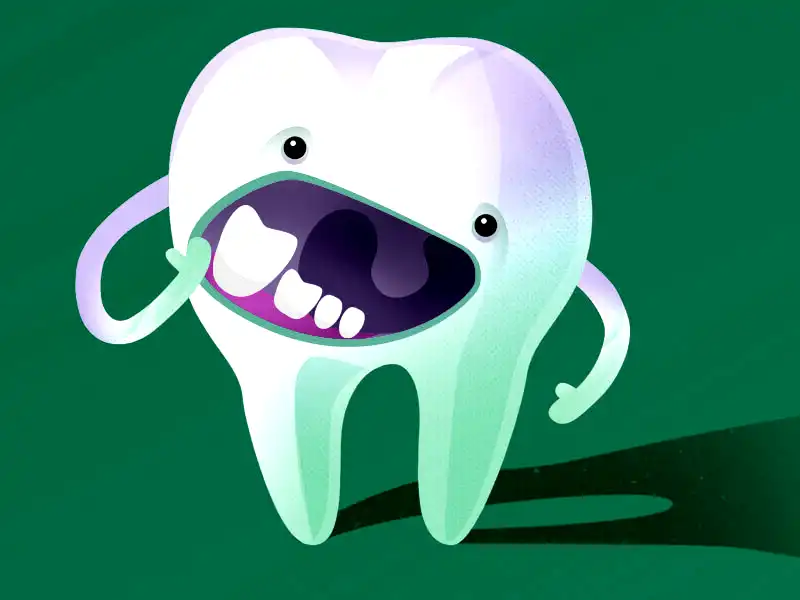Wisdom teeth, also known as third molars, often need to be removed if they’re causing problems. Here are some signs that might indicate the need for removal:
Pain or Discomfort: Experiencing sensations of pain, discomfort, or pressure that endure over time at the posterior region of your mouth, where your wisdom teeth are situated, may potentially serve as an indication that these teeth are precipitating certain issues.
Impacted Wisdom Teeth: When your wisdom teeth lack the sufficient space required for complete emergence, resulting in them becoming impacted, a situation arises wherein they could conceivably become ensnared within your jawbone or gum tissue. This, in turn, has the potential to give rise to sensations of pain, the possibility of infection, or even inflict damage upon neighboring teeth.
Infection or Gum Disease: In scenarios where your wisdom teeth are only partially erupted, they can inadvertently foster the creation of pockets within which food particles and bacteria might take residence. This inauspicious circumstance carries the risk of setting the stage for subsequent infection or the development of gum disease.
Swelling or Redness: The presence of swelling, redness, or sensations of tenderness manifesting within the vicinity of your wisdom teeth is suggestive of an underlying condition, potentially characterized by inflammation or an active infection.
Jaw Stiffness: Encountering challenges when attempting to fully open your mouth or experiencing a sense of rigidity in your jaw movement might be attributed to underlying issues associated with your wisdom teeth.
Crowding or Shifting Teeth: On occasions, wisdom teeth have the capacity to exert pressure on adjacent teeth, resulting in the potential occurrence of crowding or the gradual alteration in the alignment of your existing teeth.
Recurrent Sinus Issues: Anomalies relating to your upper wisdom teeth could potentially trigger symptoms such as sinus discomfort, heightened pressure, or a sensation of congestion within your sinus cavities.
Chronic Bad Breath: The presence of infections or entrapped food particles encircling your wisdom teeth has the capacity to contribute to the persistence of unpleasant breath odors, a condition often referred to as chronic bad breath or halitosis.
It’s important to note that not everyone needs their wisdom teeth removed. Some people have enough space in their mouth and experience no issues with their wisdom teeth. However, regular dental check-ups and X-rays can help your dentist monitor the development of your wisdom teeth and determine if removal is necessary.
If you’re experiencing any of the above symptoms or have concerns about your wisdom teeth, it’s recommended that you schedule an appointment with a dentist or oral surgeon for a thorough evaluation and personalized advice. They can provide a proper diagnosis and recommend the best course of action based on your individual situation.
Wisdom Teeth Extraction Process
The need for wisdom teeth removal can be assessed through X-rays, which provide insights into the potential issues they might cause. However, it’s important to note that not all wisdom teeth create problems, and some may not require extraction at all.
Should wisdom teeth removal become necessary, a local anesthetic might suffice to ensure a pain-free procedure. In cases where wisdom teeth are deeply impacted, making their extraction challenging, or due to other medical considerations, a general anesthetic could be an option. Nitrous oxide, commonly known as “happy gas,” might also be utilized to enhance comfort during the procedure.
Following the successful removal of the wisdom tooth, the vacated area might be sutured to facilitate healing. Expectedly, some soreness, swelling, and minimal bleeding in the jaw and gum region could persist for a few days post-procedure.
However, it’s worth acknowledging that there exists a potential complication called a dry socket (alveolar osteitis), which arises when the healing process of the extraction site is disrupted. This can lead to severe pain and an unpleasant odor. Instances of dry socket are more common in individuals who smoke or experience difficulty in healing. Notably, this complication can be effectively managed by a qualified oral health professional.
Timely Removal of Problematic Wisdom Teeth
Addressing problematic wisdom teeth at an early stage is advisable, as delaying the removal can exacerbate issues and even lead to damage to nearby teeth. Your oral health professional is equipped to detect potential problems early on. While dentists can perform wisdom teeth removal, there might be cases where a referral to an oral and maxillofacial surgeon, who possesses specialized training in teeth, bone, jaw, and facial surgeries, is recommended.
It’s worth noting that during adolescence, the roots of wisdom teeth are still in the process of formation, making their extraction relatively easier. Waiting until later in life, when the roots are fully developed, can complicate the procedure. Additionally, wisdom teeth removal tends to be smoother when performed on younger individuals whose bone heals and recuperates more rapidly.
Schedule Your Wisdom Teeth Extraction in Baytown, TX
For some portion of the population, the wisdom teeth are not able to fit inside the mouth without crowding out other teeth or even becoming impacted and causing a slew of other problems. If you are feeling discomfort or have noticed your back molars are beginning to emerge through your gums, schedule an appointment to gain some insight into the changes happening to your teeth.
Our dentists, Dr. Brian L. Porter or Dr. Kelley Joo, can help you determine if removing your wisdom teeth is the right option for you. We will go over all of your options and help you make the best choice for your mouth.
If you are looking into wisdom teeth removal in Baytown, Texas, please call Brian L. Porter, DDS today at 281-422-3415 for more information.
Brian L. Porter, DDS
1109 E. James Ave.
Baytown, TX 77520
281-422-3415
View our Google Business Listing

